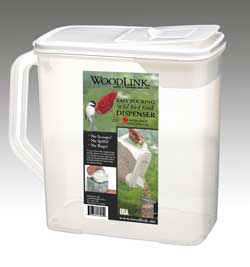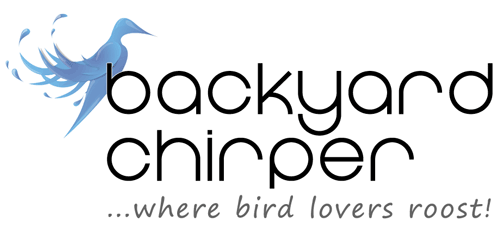For most people, feeding wild birds is a great joy in life because it gives the feeling of being in tune with nature. While feeding birds is, in fact, a great way to help birds maintain a healthy and balanced diet, there are some risks if you give them food that’s not properly stored.
Birdseed that is left out in the elements can become moldy and fatal if birds consume it. Here are some things you can do when storing wild bird food to keep your bird feeders safe and delicious for birds.

Store wild birdseed in waterproof containers
The first thing you should do after you open a bag of birdseed is remove any remaining seed from the bag. Leaving it in the bag could leave the seed exposed to moisture, which can lead to the growth of mold. There are large waterproof containers made specifically for this purpose, so it can actually be easier to pour birdseed into bird feeders than from a bag. One of the best containers is the Woodlink 6-Quart Seed Container, which features a handle and a two ways to pour the seed.
Make sure the container is durable
A good seed container should be highly durable because any cracks or leaks defeat the purpose of a seed storage container. Critters like mice and insects love eating birdseed, so if there is a break, they’ll find a way inside to contaminate the seed.
Be mindful of where you store it
The location and temperature where you store wild bird food is important to consider. Birdseed should be stored in the container in a dry and cool area. If you make suet cakes for wild birds, you should freeze them to give a longer shelf life because the contents of suet usually go bad much quicker. Similarly, if you make your own hummingbird nectar, you should store it in the refrigerator or freeze it if you’re not going to use it immediately.
Always check the bird food before putting it out
As a good rule of thumb, you should always examine your wild bird food before putting it out in your feeders. This can be as simple as looking at the food to see if there is any mold or if insects have contaminated it. Properly storing and checking the food will ensure the birds you feed are safe and healthy.

